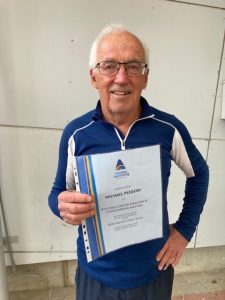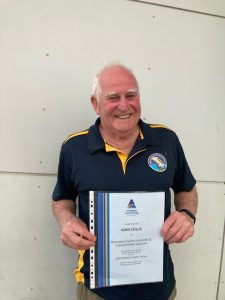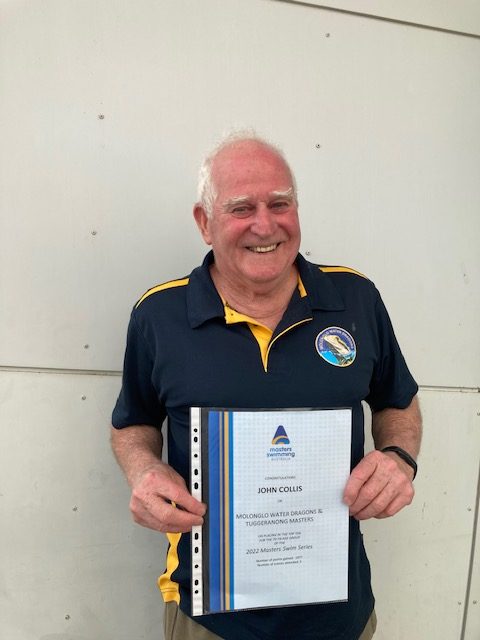Two Water Dragons members recently received certificates (see photos) for their performances in the 2022 Masters Swimming Australia National Swim Series.
Club captain, registrar and vice president, John Collis finished 4th in his 70-74 age group with 1977 points from three swim meets (the National Swim in Sydney, NSW Long Course Championships at the AIS pool in Bruce, and the Pan Pacific Masters Games at Southport).
Competing only in the first two of these, crack freestyler, Michael Peedom finished 5th in the 75-79 age group with 605 points.
Points can be gained at 10 listed swim meets that are held throughout the year in a mixture of short Course (25m) and long course (50m) pools. In 2022 the 10 meets were the three named above plus two in Western Australia and one each in The Northern Territory,
Queensland, South Australia, Tasmania and Victoria. Swimmers must compete in at least two of the meets.
Scoring uses a complicated formula that takes a swimmer’s performances in events at meets as follows:
The best five from the possible 10 (note John contested 3, Mike 2),
Uses FINA listed events only (not 25m swims nor swims other than freestyle longer than 200m),
Applies a factor that compares their time in an event with the world record for that event,
Recognises the number of meets they contested,
Then comes up with the final scores listed above.
The winners of both of their age groups were
70-74 Don Taylor Doncaster Dolphins, Melbourne with 2569 points from 3 meets
and
75-79 Rod Clarke University of Queensland, Brisbane with 3858 points from 4 meets
For comparison, World Champion and record holder, Tony Goodwin of Manly, Sydney scored 2966 points from 3 meets to top the 85-89 age group.
Perhaps you should consider this competition when you have retired as it is determined as much by participation as it is by speed.
Footnotes
A meet is a competition that may last from 4 hours to five days.
An event is a series of races in the meet that are all the same distance and stroke, e.g. 50 metres Freestyle.
While swimmers are seeded into races based on their previous times, the results are separated into 5 year age groups and female and male.



